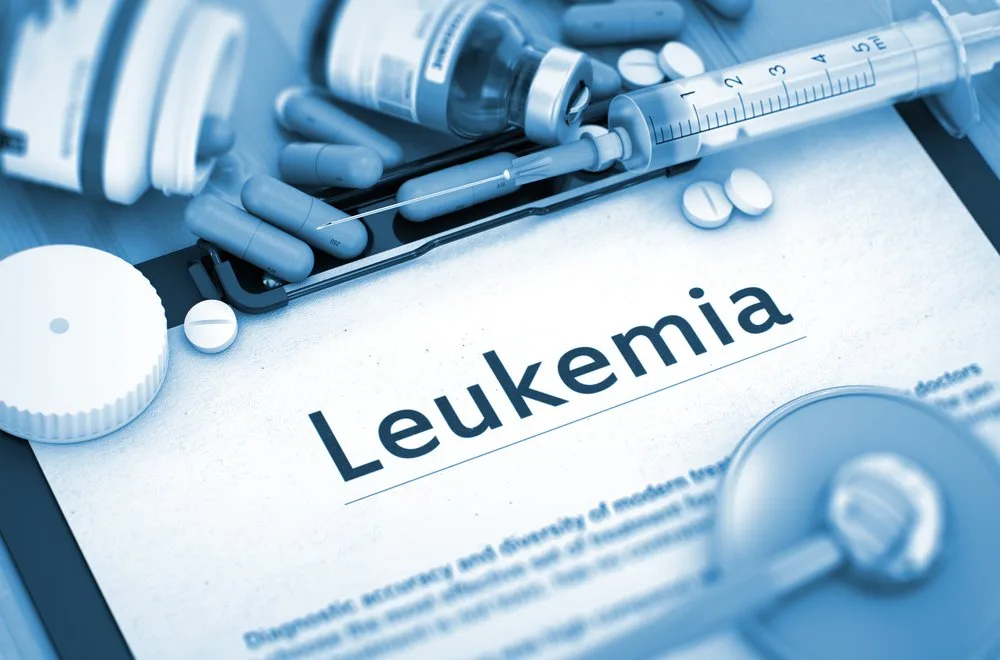Two experts from Cleveland Clinic explain how a new cell-based gene therapy is helping patients with certain types of leukemia, with research into potential wider applications continues.
As World Leukemia Day approaches on 4 September, experts from global health system Cleveland Clinic are working on new immunotherapy treatments for blood cancers such as leukemia, expanding treatment options and bringing hope to patients for whom other treatments have failed.
Leukemia is a group of cancers characterized by rapid, uncontrolled growth of abnormal blood cells called leukemia cells. It can occur in children and adults and according to the World Cancer Research Fund International, it is the 13th most prevalent cancer globally.
T -Cell Therapy Is Changing the Leukemia Landscape
According to Jan Joseph Melenhorst, PhD, a translational immunologist who is Director of Cleveland Clinic’s recently established Cell Therapy and Immuno-Engineering Program, chimeric antigen receptor (CAR) T-cell therapy is profoundly changing the treatment landscape, bringing the promise of durable remission for many patients with blood cancers such as leukemia.

Dr-Jan Joseph-Melenhorst
“CAR T-cell therapy is a specialized treatment using a patient’s own T-cells – a type of white blood cell that forms part of the immune system.
The T-cells are extracted and genetically modified so that they can recognize and destroy cancer cells, before being multiplied and infused back into the bloodstream,” explains Dr. Melenhorst, who is also Vice Chair of the Center for Immunotherapy and Precision Immuno-Oncology at Cleveland Clinic.
New hope for patients
He added that while CAR T-cell therapy has brought new hope for many patients, there are currently several challenges to overcome in administering the treatment.
“In particular, it may be more expensive than other therapies. Additionally, it has potentially serious side effects.
This limits access to treatment as the therapy needs to be administered on an inpatient basis at a specialized facility where the side effects can be managed. We are working with Cleveland’s Case Western Reserve University and other parties and collaborating with various manufacturers to address issues such as accessibility, safety, and costs,” he says.
FDA has approved this treatment for leukemia
Dr. Melenhorst and his team are also aiming to improve the efficacy of existing CAR T-cell therapies while developing new versions for a wide range of blood and other cancers.
Their colleague, Craig Sauter, MD, is a hematologist and Director of Blood and Marrow Transplant at the Cleveland Clinic who has been using CAR T-cell therapy to successfully treat patients with leukemia and other blood cancers where other treatments have failed.
“The standard of care in initial therapy for many acute leukemia patients remains cytotoxic chemotherapy, with the aim of achieving remission. In cases where first-line chemotherapy or other treatments have failed, however, CAR T-cells provide another potential treatment option for patients with B-cell acute lymphoblastic leukemia. In the FDA-approved indications, it has proved much more effective than the previous standard, which was a further round of chemotherapy,” he says.
The U.S. Food and Drug Administration (FDA) has approved commercial CAR T-cell products for several types of blood cancers including acute lymphocytic leukemia (ALL) in patients who have been resistant to other treatments or whose cancer has returned after a period of remission. Clinical trials are also underway at institutions including Cleveland Clinic for CAR T-cells to treat acute myeloid leukemia (AML).
An acute chronic disease
ALL and AML are two of the four main types of leukemia. The disease is classified as ‘acute’ or ‘chronic’ based on how rapidly the disease spreads in the body, and as ‘myeloid’ or ‘lymphocytic’ depending on whether the leukemia cells arise from myeloid cells, which develop in bone marrow, or from lymphoid cells, which are related to the immune system.

Dr. Craig Sauter
Explaining how the procedure works in practice,
Dr. Sauter says the first step is to extract the patients’ lymphocytes and insert an inactive virus that delivers new genetic instructions to the T-cells to start producing chimeric antigen receptors targeting proteins that live on the malignant cells.
Researchers take a small batch of these newly altered CAR T-cells and induce them to grow and multiply until there are enough to effectively target cancer cells.
CAR T-cell therapy in its early phase
The CAR T-cells are frozen and stored until the patient is ready to receive them. To prepare for the infusion, the patient receives a mild form of chemotherapy to prevent the immune system from rejecting the CAR T-cells.
According to Dr. Sauter, most people need to stay in the hospital for one to two weeks so their response to the treatment can be monitored and any side effects treated. The two most common side effects of CAR T-cell therapies are cytokine release syndrome (CRS) and neurological problems such as headaches, confusion, or difficulty speaking during the treatment period.
Dr. Sauter points out CAR T-cell therapy is in its early phase, but he is cautiously optimistic about its potential. “In future, as a result of further research and carefully conducted studies, there may be an opportunity to identify high-risk groups who may benefit from having CAR T-cell therapy over chemotherapy in earlier lines of treatment,” he says. “The possibility of its application being extended to treat other forms of cancer is also very exciting.”
About Cleveland Clinic
Cleveland Clinic is a nonprofit multispecialty academic medical center that integrates clinical and hospital care with research and education. Located in Cleveland, Ohio, it was founded in 1921 by four renowned physicians with a vision of providing outstanding patient care based upon the principles of cooperation, compassion and innovation. Cleveland Clinic has pioneered many medical breakthroughs, including coronary artery bypass surgery and the first face transplant in the United States.





![women [longevity live]](https://longevitylive.com/wp-content/uploads/2020/01/photo-of-women-walking-down-the-street-1116984-100x100.jpg)










